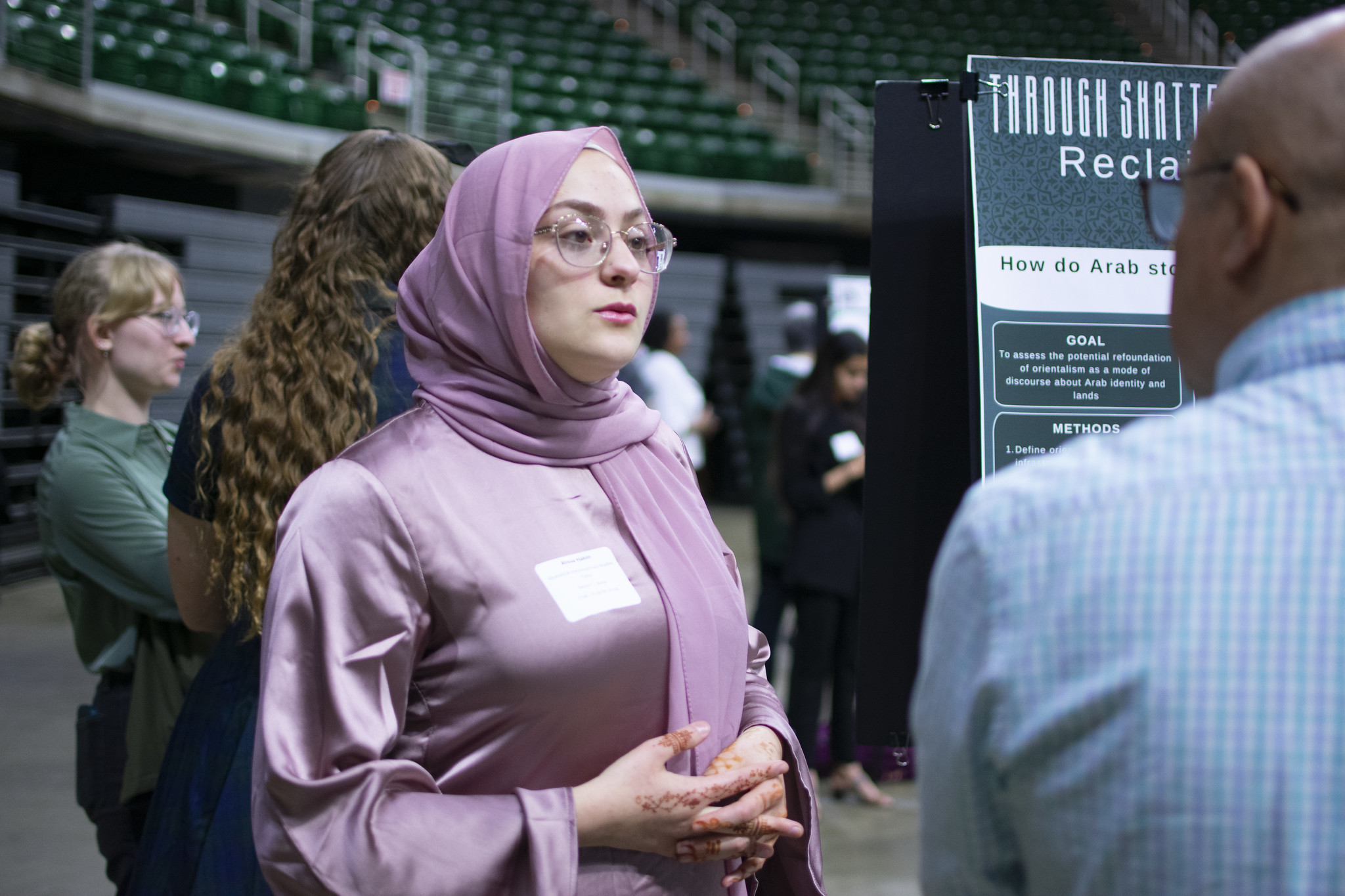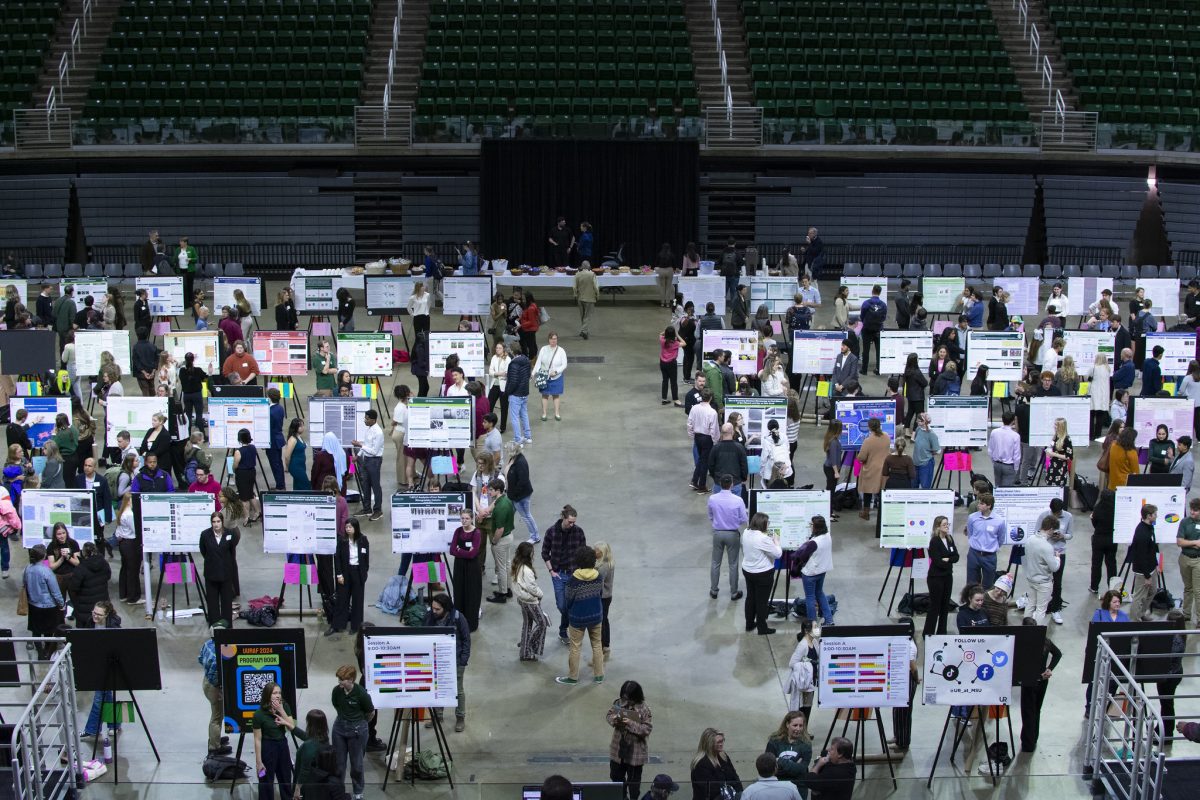By Sloane Barlow
Five hundred sixty-three Honors College students participated in the 2024 University Undergraduate Research and Arts Forum (UURAF), making up almost 60% of the roughly 1,000 university participants.
Honors College students presented their research across many disciplines, either in-person at the Breslin Student Events Center or online.
Additionally, eighth and ninth graders from the inaugural MSU Detroit Early Honors Experience had the opportunity to visit UURAF with two members of the Honors College staff: Assistant Dean Bess German and Director of Diversity, Equity, Inclusion, and Belonging Erika Crews.
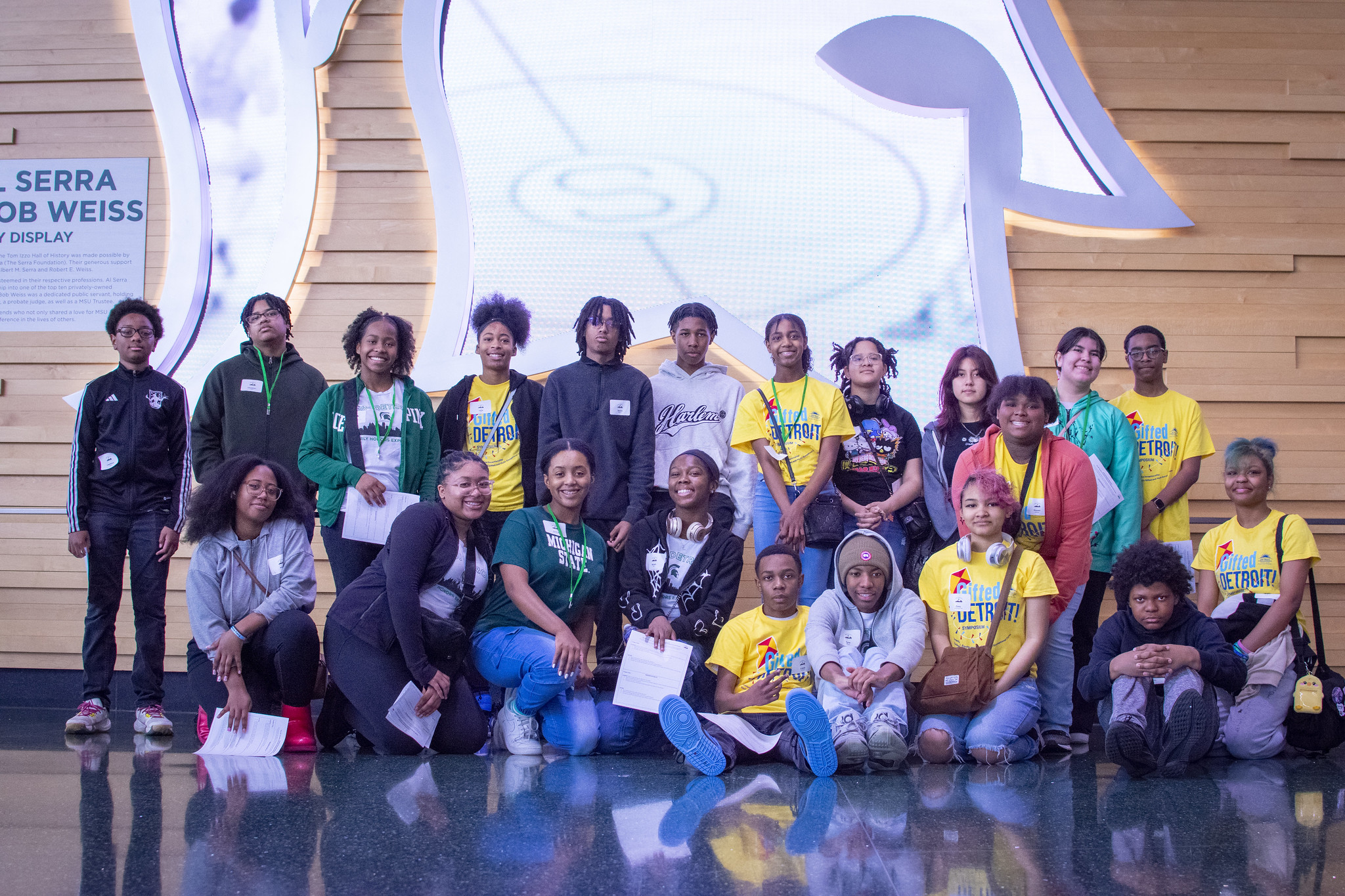
Presenting research in business and entrepreneurship
Second-year students Jogi Katende and Delani Stull presented research they worked on together, titled “Global Sustainable Stock Portfolios From an Investor’s Perspective”. They focused on comparing sustainable investments with traditional investments to propose more sustainable investment strategies.
“Sustainability is becoming a more and more important aspect of our world, so our research was given for individual investors or large investors, and what would be recommended to do given their investor profiles,” Katende said.
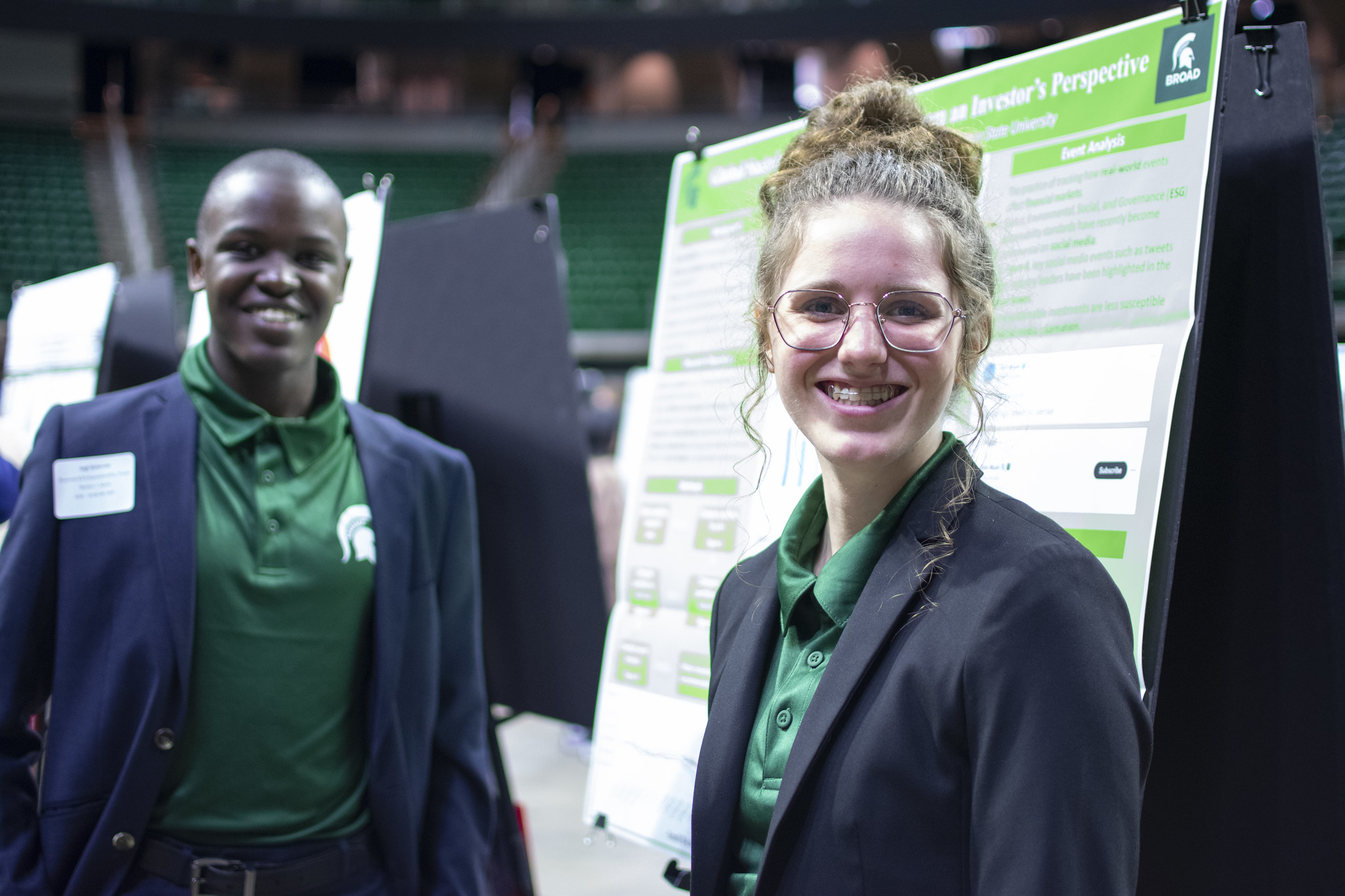
Making strides in agriculture and animal science
Stull presented a second research project later that afternoon, titled “Mooving Forward: Utilizing Animal Behavior Data for early BLV Detection”.
“BLV [Bovine leukemia virus] causes a lifelong infection that suppresses the immune system of cattle making them more susceptible to infections and decreasing their lifespan,” Stull said.
She conducted a statistical analysis to determine a method of catching early signs of BLV in cattle.
Building on research in biochemistry and molecular biology
James Suggit also presented in the afternoon with his solo presentation: “Cracking Annona Squamosa Root Diterpenoid Pathways”. The sugar apple, or the Annona squamosa, was the focus of his work.
He initially began researching for the Great Lakes Bioenergy Research Center, until he decided to begin his own project in the research lab. After talking to his research mentor, he was able to find a project where a previous graduate student had already laid the groundwork, allowing Suggit to build off it.
“This is about 18 months in progress, so we’re at a point now where we’re starting to write the manuscript, which is really exciting,” Suggit said. “It’s kind of all come to fruition, and then there’s some exciting future work that we can look at as well.”
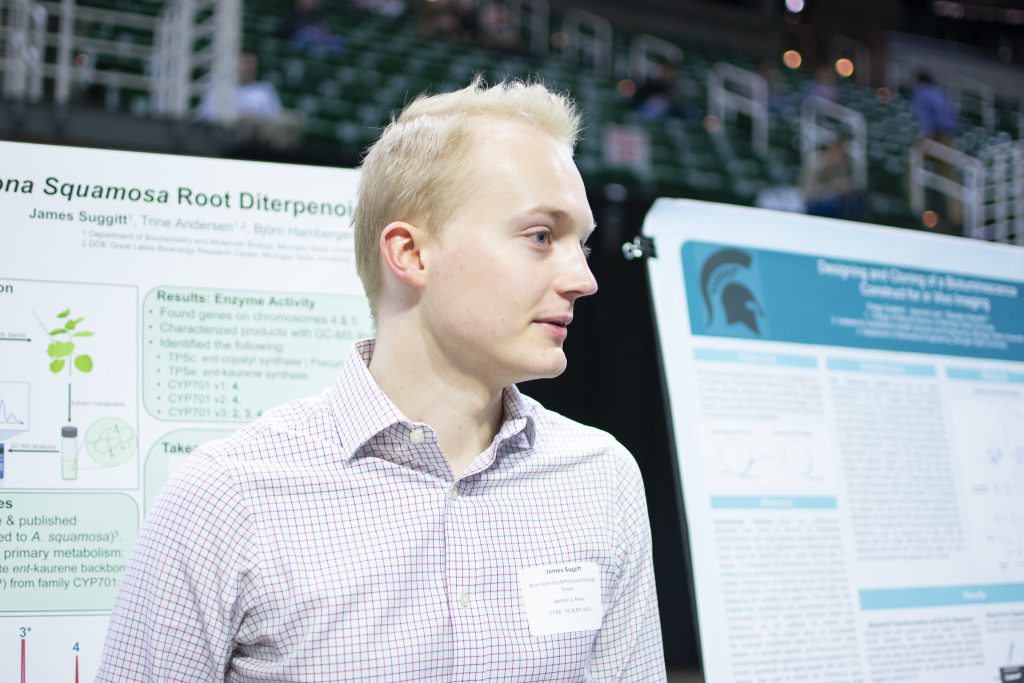
Emphasizing the importance of diversity and interdisciplinary studies
Alissa Hakim focused her research on the stereotypes of Arab identity from an Orientalist perspective, titled “Through Shattered Glass: Reclaiming Culture, History, and Humanity from Orientalism”. She drew her research from the current violence in Palestine and the contemporary racist, Islamophobic, and xenophobic rhetoric used in the top U.S. news sources to document Arab American narratives.
“I truly do think that we could be entering this turning point where the smoke and mirrors of Orientalism are starting to shatter,” said Hakim.
Hakim drew from her Arab identity and her Lebanese roots as inspiration for her research.
“My family’s home was destroyed in the 2006 war, where Israel bombed our home,” said Hakim. “They just recently rebuilt it. And I remember earlier last semester, I was talking to my grandpa, and he was telling me how he could hear the bombs in the background while he was planting his olive trees.”
“I kept telling him ‘Jedo, Grandpa, you need to leave, go back to the city and get out of there’. But he said ‘This is my land. These are my trees. I’m going to stay here’.”
